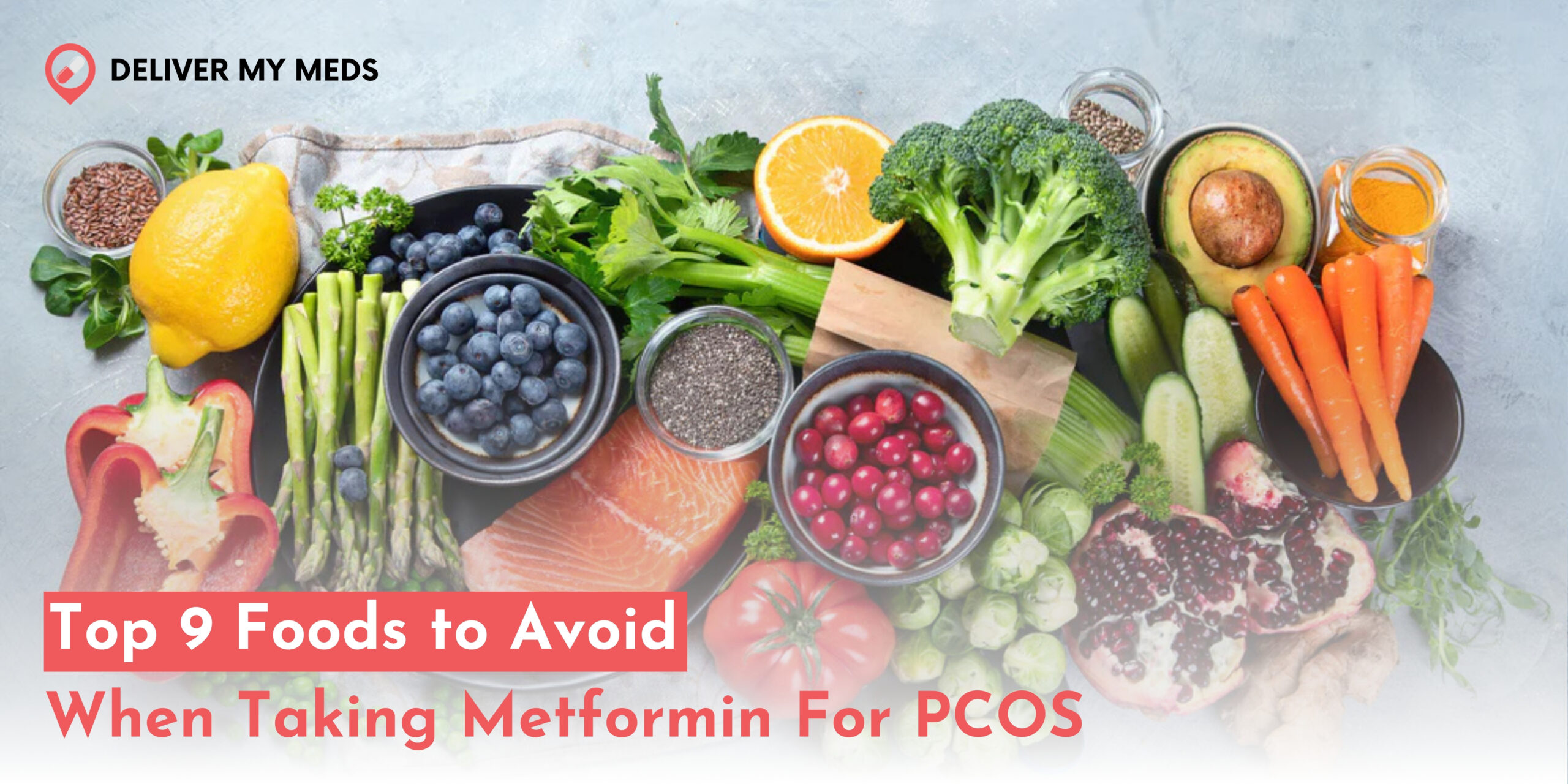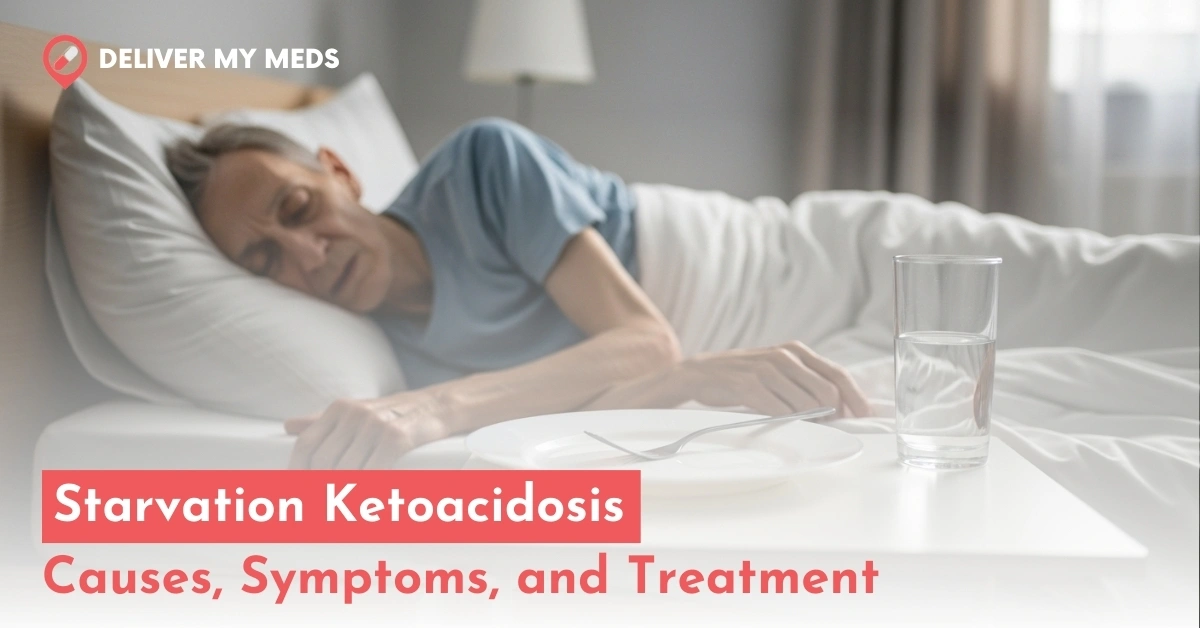
One of the most common hormonal disorders is Polycystic Ovary Syndrome, or PCOS, which occurs in millions of women around the world and comprises the most apparent signs, such as irregular periods, weight gain, and insulin resistance. Metformin is commonly given to patients suffering from PCOS to reverse insulin resistance; therefore, the blood sugar will also come within normal limits along with other signs and symptoms, but diet is necessary for enhancing more effective benefits from metformin with reduced adverse effects. In the next blog post, let’s go over the details of foods to avoid when taking metformin for PCOS.
Why Diet Makes a Difference on Metformin and PCOS
The drug reduces blood glucose, increases the body’s sensitivity to insulin, and prevents glucose production in the liver. No matter how potent, metformin triggers some side effects: gastrointestinal upset, nausea, and diarrhea, primarily when it is at the same time as food substances. In women with PCOS, the same principle applies to the reduction of sugar from the diet, which directly avoids surges in insulin levels and leads to fewer symptoms such as weight gain, acne, and tiredness.
Foods to Avoid When Taking Metformin for PCOS
1. Foods and Drinks Containing High Sugar Levels
- Why Avoid: Metformin aims to stabilize blood sugar levels, but food and beverages high in sugar will cause rapid spikes and crashes that will counteract the action of the medication.
- Examples: Soda, candy, pastries, cakes, cookies, and desserts containing added sugars.
- Alternative: Use natural sweeteners such as stevia or small portions of fruits like berries, which have a lower glycemic index.
2. Refined Carbohydrates
- Why Avoid: Refined carbs are high in simple carbs that quickly become sugar within your body. Therefore, blood sugars increase quickly, leading to insulin resistance. So, these are the foods to avoid when taking metformin for Pcos.
- Examples: White bread, white rice, regular pasta, and processed snack bars such as crackers and chips
- Alternative: Prefer whole grain complex carbs or Quinoa, Brown rice, Oats, and Whole grain breads
3. Fried and Greasy Foods
- Avoid Fried and Greasy Foods: Fried and greasy are the foods to avoid when taking metformin for PCOS because they delay digestion and worsen metformin’s gastrointestinal side effects, such as nausea and diarrhea.
- Example: French fries, fried chicken, doughnuts, and greasy or oily foodstuffs.
- Alternative: Baked, grilled, or steamed with low-fat
4. Alcohol
- Why Avoid: Alcohol can impair metformin’s action in controlling blood sugar and also causes a rare but potentially life-threatening side effect known as lactic acidosis, where too much lactic acid builds up in the blood.
- Examples: Beer, wine, cocktails, and hard liquor.
- Alternative: If you drink, do so in moderation and consult your doctor about safe limits.
5. High-Fat Dairy Products
- Why to Avoid: Full-fat dairy is often saturated with fat, contributing to insulin resistance and worsening PCOS symptoms. It also slows down the digestion process; thus, this enhances the side effects of metformin.
- Examples: Milk, cream, butter, and high-fat cheeses
- Alternative: Choose low-fat or non-dairy versions such as almond or oat. Alternatively, select low-fat yogurt.
6. Packaged and Processed Foods
- Why Avoid: This food contains unhealthy fat, sugar, and salt. These negatively affect both insulin sensitivity and sugar regulation in the blood.
- Examples: Instant noodles, frozen meals, packaged snacks, and ready-to-eat junk food.
- Alternative: Emphasize whole, minimally processed foods such as fresh vegetables, fruits, and lean proteins.
7. High-Sodium Foods
- Why to Avoid: Sodium intake is too high; it causes retention of water, which can contribute to bloating, a frequent complaint in women with PCOS. Sodium-rich foods can exacerbate the gastrointestinal side effects of metformin.
- Examples: Canned soups, salted snacks, processed meats, and fast food.
- Alternative: Instead of salt, use herbs and spices to season food and meals. Fresh or low-sodium packaged fruits and vegetables.
8. Sugary Fruits
- Why to Avoid: Fruits are generally healthy, but some have a high glycemic index and cause spikes in blood sugar when taken in large amounts.
- Examples: Watermelon, mangoes, bananas, and pineapples.
- Alternative: Low-glycemic fruits like berries, apples, pears, and citrus fruits in moderation.
9. Carbonated Drinks
- Why to Avoid: Carbonated drinks, especially those with artificial sweeteners, can worsen bloating and gastrointestinal discomfort due to metformin.
- Examples: Soda, sparkling water with added sugars, and energy drinks.
- Alternative: Hydrate with water, herbal teas, or infused water with lemon or cucumber.
More Tips on Using Metformin for PCOS
Balanced meals: Carb mixing with protein and good fats slows down sugar absorption and maintains blood sugar.
Hydration: Drinking enough water has helped the body break down metformin quickly, decreasing the chances of several side effects, such as nausea.
Don’t starve yourself: Skipping meals can be one-way blood sugar will get out of balance and cause the symptoms to worsen PCOS. Stick to a balanced diet.
Portion Control: Even good foods eaten in excess cause spikes in blood sugar. Pay attention to your portions.
Monitor Glucose with CGM Devices: Using a (CGM) Continuous Glucose Monitor Devices is a great way to manage PCOS, particularly for those with insulin resistance. CGMs provide real-time glucose readings, helping you track blood sugar fluctuations and see how Metformin affects your levels. Popular CGM devices include Dexcom G6, Freestyle Libre 2, Medtronic Guardian Connect, and Omnipod insulin pump, which offer valuable insights for better managing PCOS and personalizing your treatment plan.
Conclusion
Diet is one of the necessary management tools when using metformin for PCOS. Diet, besides metformin, will make the drug more potent but reduce the adverse effects it induces. Foods to avoid when taking metformin for PCOS include a high-sugar diet, a diet containing refined carbs and unhealthy fats, and a diet with high sodium, which will improve blood sugar levels, improve insulin sensitivity, and remove PCOS symptoms. Take advantage of such an effect by taking the medicine, regular exercise, and good lifestyle habits. A healthcare provider or a registered dietitian should be consulted to provide a personalized diet that will fulfill your needs and health objectives.



